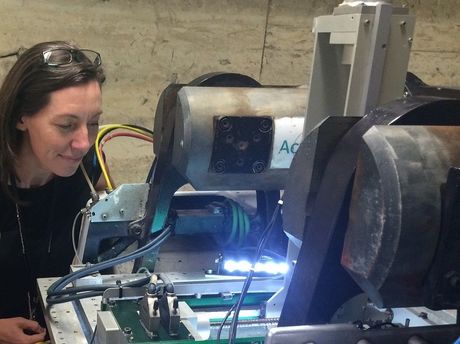UWA launches $20m oil and gas research hubs

Two new $20 million hubs to be used for international research and training in offshore oil and gas have been officially launched at The University of Western Australia (UWA).
The launch coincided in the same week 5000 delegates gathered in Perth for the LNG18 conference from 11–15 April.
UWA Deputy Vice-Chancellor Professor Robyn Owens said the timing highlighted Perth’s role as an energy city.
“The hubs will be powerful tools for connecting research and industry with the partnership providing a competitive edge for products, processes and services,” said Professor Owens. “They will be a unique training environment and will provide a highly skilled workforce with the expertise to unlock Australia’s energy resources and strengthen our contribution to the global energy engineering business.”
With $9.6 million in combined funding from ARC and nine industry partners, one of the hubs, the ARC Training Centre for LNG Futures, will be led by UWA’s Chevron Chair in Gas Process Engineering, Professor Eric May.
The centre will focus on cost-effective LNG production, at all scales, in remote or deep-water locations, with 11 industry-driven research projects planned across a five-year period, as well as training for 12 PhD students and five research fellows.
“The centre’s legacy will be a globally unique LNG research and training facility, designed for future integration into a microscale LNG plant,” said Professor May. “We will be working over the next few years with our industry partners, including those from Korea, China and the USA, to make a microscale LNG plant in Western Australia dedicated for training and research.”
The second hub, the ARC Research Hub for Offshore Floating Facilities, to be led by the university’s Shell EMI Chair in Offshore Engineering Professor David White, will help ensure Australia plays a leading role in future offshore energy developments across the globe.

With $10 million in combined funding from the ARC and four industry partners — Shell, Woodside, Lloyd’s Register and Bureau Veritas — Professor White said the centre will address the critical engineering challenges associated with Australia’s next generation of offshore oil and gas projects, which will require innovative floating facilities.
The hub will develop and deploy the new technologies and analysis methods required for safe and efficient projects with work spanning ocean forecasting, vessel motion and offloading analysis, riser and mooring longevity and novel anchoring and subsea foundations.
The research facilities are part of the Australian Research Council’s (ARC) Industrial Transformation Research Program, with two of the nine centres announced by the federal government in May last year going to UWA.
UWA said partner organisations in the ARC Research Hub for Floating Facilities are Woodside, Shell, Lloyds Register and Bureau Veritas, while the ARC funding for the ARC Training Centre for LNG Futures is matched by support from industry partners Chevron, Shell, Woodside, Samsung, Daewoo, GE, Clough, Guodin and VMG.
Originally published here.
New liquid catalyst to transform chemical manufacturing
A major Australian breakthrough in liquid catalysis could transform how essential products are made.
Climate Smart Engineering Conference 2025: program announced
Engineers Australia says that Australia's leading voices in climate resilience,...
Aussie manufacturing conditions improve at fastest pace since 2022
S&P Global has reported that Australia's manufacturing sector experienced its strongest...








